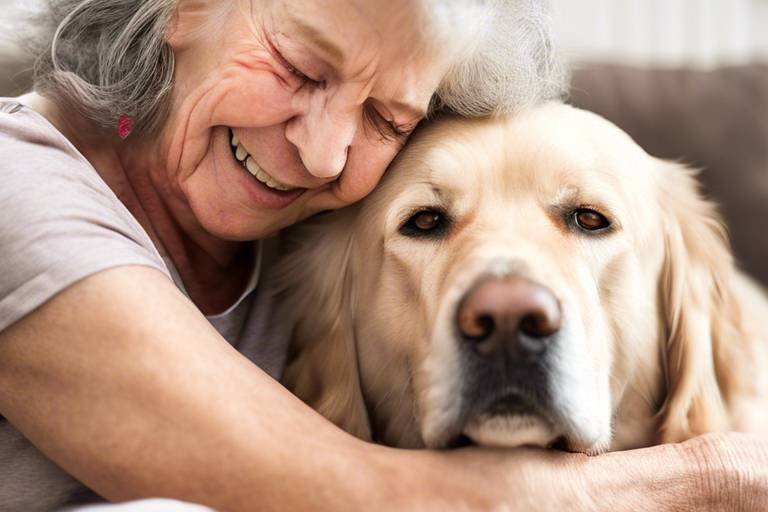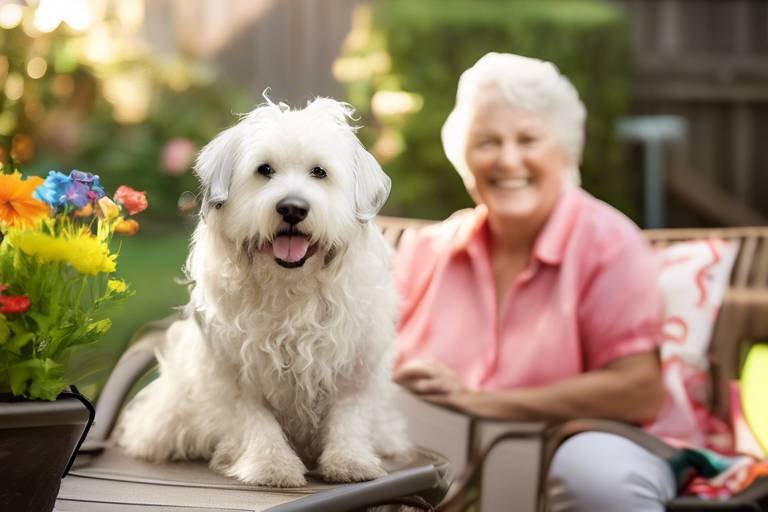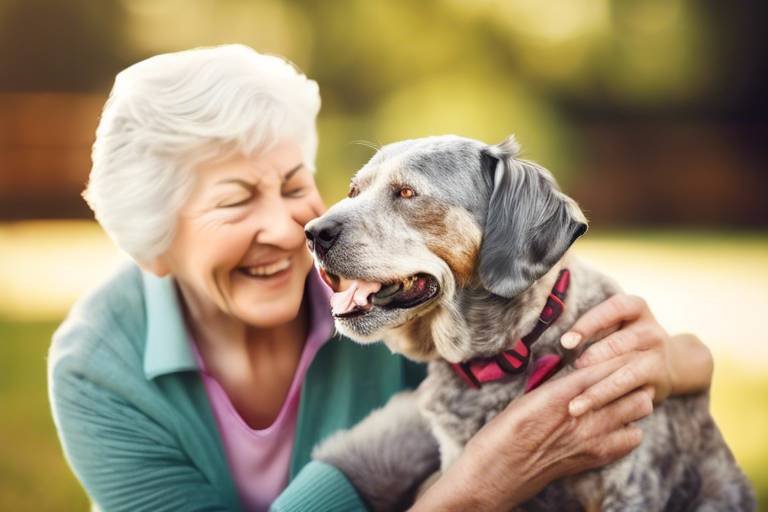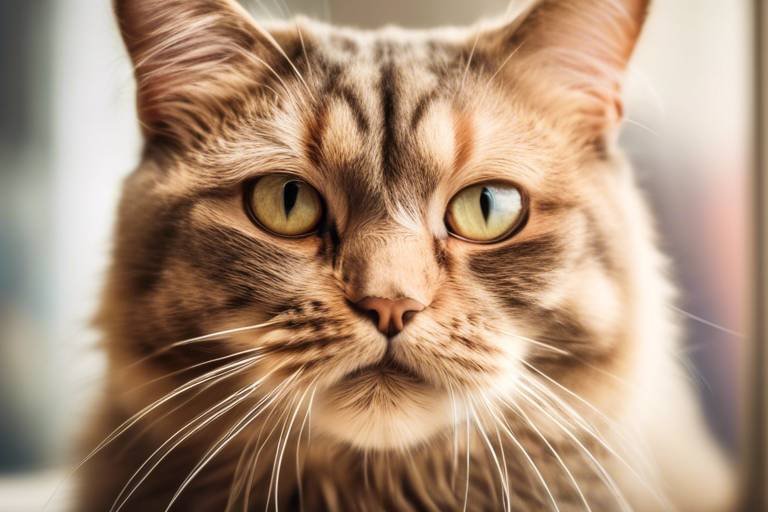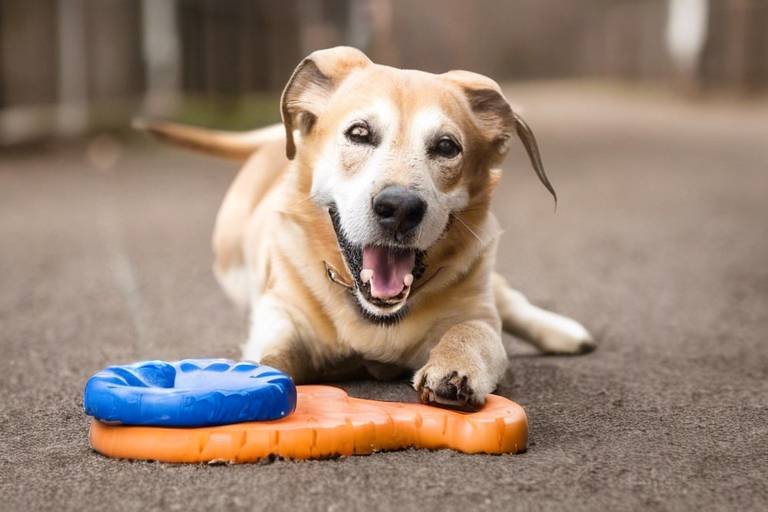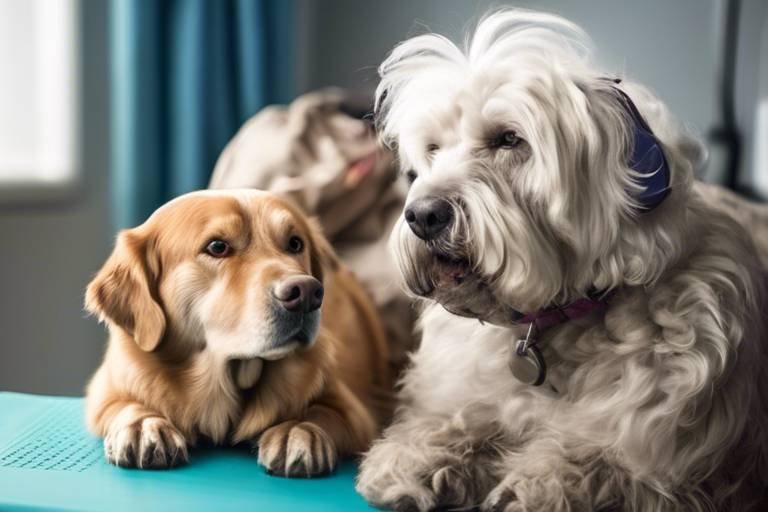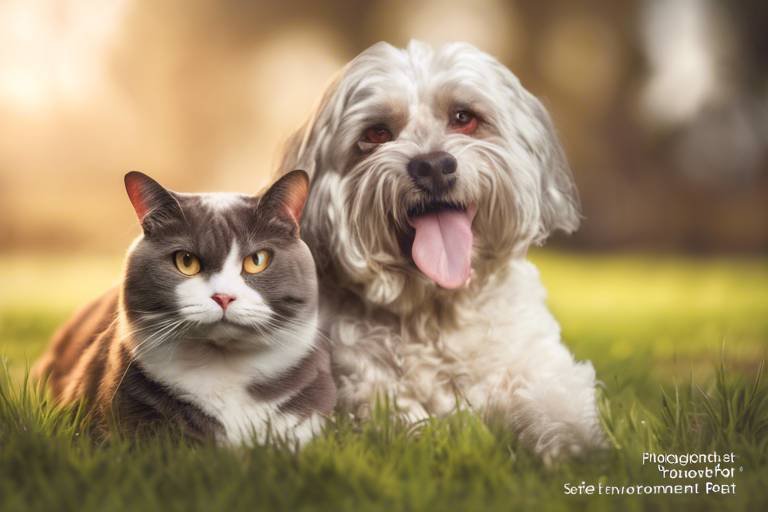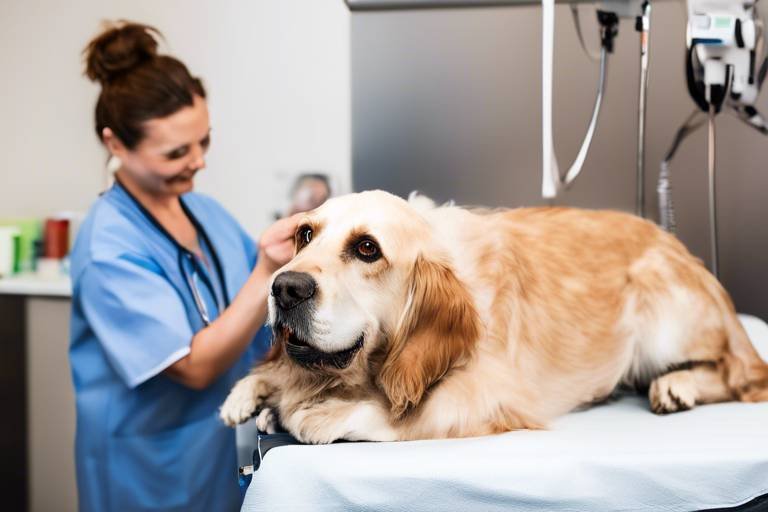Understanding the Risks of Obesity in Senior Pets
As our beloved furry friends age, their needs change significantly. One of the most pressing concerns for senior pets is obesity. Just like in humans, excess weight can lead to a myriad of health complications that can drastically affect their quality of life. Imagine your once sprightly dog, now struggling to climb the stairs or your cat, who used to leap gracefully onto the windowsill, now unable to jump at all. It's heartbreaking, isn't it? This article explores the various risks associated with obesity in senior pets, including health complications, preventive measures, and effective management strategies to ensure a healthier and happier life for our furry companions.
Maintaining a healthy weight is crucial for senior pets. As they age, their metabolism slows down, and their activity levels typically decrease. This means that the same amount of food they used to eat can now lead to weight gain. Proper weight management is not just about aesthetics; it's about enhancing their overall quality of life. Think of it this way: a pet at a healthy weight is like a car that runs smoothly — it can go the distance without breaking down. On the other hand, an overweight pet is like a car with a flat tire, struggling to move forward. By keeping our pets at a healthy weight, we can significantly reduce the risk of chronic diseases and improve their mobility, energy levels, and happiness.
Obesity in senior pets can lead to numerous health issues. Unfortunately, many pet owners may not realize the extent of the risks involved. Overweight pets are more likely to suffer from serious conditions such as:
- Diabetes
- Arthritis
- Heart disease
Each of these conditions can severely impact a pet's quality of life. For instance, diabetes can lead to a host of other complications, while arthritis can make simple activities like walking or playing excruciatingly painful.
Diabetes is a common condition in overweight pets, and its prevalence has been steadily increasing. When a pet is obese, their body becomes resistant to insulin, the hormone responsible for regulating blood sugar levels. This can lead to a condition where their blood sugar becomes dangerously high, resulting in diabetes. The implications of diabetes can be serious, including increased thirst, frequent urination, and lethargy. Imagine having to constantly monitor your pet's food intake and insulin levels — it can be a full-time job!
Recognizing the signs of diabetes in senior pets is vital for early intervention. Some key symptoms to watch for include:
- Increased thirst
- Frequent urination
- Unexplained weight loss
- Increased appetite
- Lethargy
If you notice any of these signs, it's essential to consult your veterinarian as soon as possible. Early diagnosis can make a world of difference in managing the condition.
Effective management of diabetes in obese pets requires a comprehensive approach. This includes:
- Dietary changes: Switching to a low-carb, high-fiber diet can help stabilize blood sugar levels.
- Medication: Insulin therapy may be necessary for some pets.
- Lifestyle modifications: Regular exercise is crucial to help maintain a healthy weight.
By implementing these strategies, pet owners can help their furry companions lead a healthier life.
Arthritis is another significant risk associated with obesity. The excess weight puts additional strain on a pet's joints, exacerbating arthritis symptoms and leading to chronic pain. Imagine carrying an extra backpack filled with rocks; that’s how your pet feels with excess weight on their joints. Maintaining a healthy weight is essential not only for preventing arthritis but also for alleviating joint pain in those already affected. Regular check-ups with the veterinarian can help monitor joint health and adjust treatment plans as necessary.
Preventing obesity in senior pets is essential. It’s much easier to maintain a healthy weight than to lose it. Pet owners can take proactive steps to ensure their pets stay fit and healthy. Here are some practical tips:
- Proper diet: Consult with a veterinarian to determine the best diet for your pet's age and activity level.
- Regular exercise: Engage in daily activities that stimulate both their mind and body.
- Routine veterinary check-ups: Regular visits can help catch weight issues before they become serious.
Understanding the nutritional needs of senior pets is fundamental in preventing obesity. Senior pets often require fewer calories but more nutrients to support their aging bodies. Look for high-quality pet food that lists meat as the first ingredient and avoid those filled with fillers like corn and soy. Portion control is also crucial; using a measuring cup can help ensure you’re not overfeeding your pet.
Regular exercise is vital for senior pets. Activities should be tailored to their capabilities but should still encourage movement. Consider gentle walks, interactive play, or even swimming, which is easy on the joints. Just like humans, pets need to stay active to maintain a healthy weight and overall well-being.
Q: How can I tell if my pet is overweight?
A: A good rule of thumb is to feel your pet's ribs. You should be able to feel them without too much pressure. If you can't, your pet may be overweight.
Q: What should I do if my pet is overweight?
A: Consult with your veterinarian to create a tailored weight loss plan that includes diet changes and exercise recommendations.
Q: Are certain breeds more prone to obesity?
A: Yes, some breeds, such as Bulldogs and Dachshunds, are more prone to obesity due to their genetics and body structure.
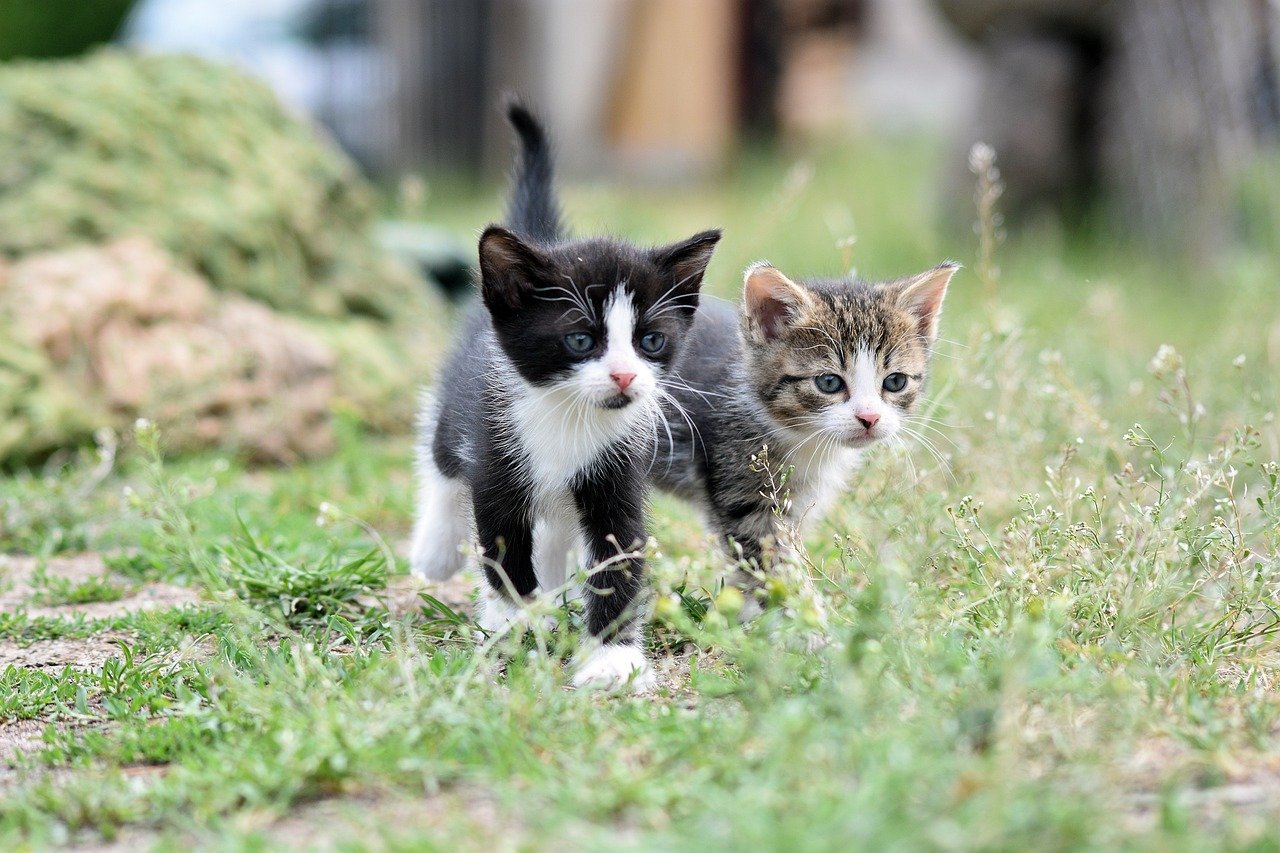
The Importance of Weight Management
When it comes to our beloved senior pets, maintaining a healthy weight is not just a matter of aesthetics; it’s a critical component of their overall well-being. Imagine your furry friend as a vibrant, energetic companion, rather than a sluggish shadow of their former self. Proper weight management can significantly enhance their quality of life, allowing them to enjoy their golden years to the fullest. Just as we humans feel more agile and lively when we shed a few pounds, our pets experience similar benefits.
As pets age, their metabolism slows down, making them more prone to weight gain. This is where the importance of weight management kicks in. By keeping an eye on their diet and exercise, pet owners can help prevent a host of health problems that often accompany obesity. Think of it like this: if you were driving a car with a heavy load, wouldn’t it struggle to accelerate? The same goes for our pets. Extra weight puts undue stress on their joints, organs, and overall health, leading to a shorter lifespan and a diminished quality of life.
One of the most significant advantages of managing your pet's weight is the reduction of chronic diseases. Conditions like diabetes, heart disease, and arthritis are often exacerbated by excess weight. By keeping your pet at a healthy weight, you’re not just prolonging their life; you’re also enhancing their happiness and comfort. For example, a pet that can easily jump onto the couch or run around the yard is much more likely to enjoy their daily activities than one who struggles to move due to excess weight.
In addition to physical health, weight management also plays a role in your pet's mental well-being. Overweight pets may experience a lack of energy and enthusiasm, which can lead to boredom and depression. Just like us, pets thrive on activity and engagement. Keeping them at a healthy weight encourages playfulness and an eagerness to explore their environment. This not only strengthens the bond between you and your pet but also contributes to a happier household overall.
So, how can you effectively manage your pet's weight? It’s all about finding the right balance of nutrition and exercise. Here are some quick tips to get you started:
- Consult Your Vet: Always start with a professional assessment of your pet's current weight and health status.
- Portion Control: Measure your pet's food to avoid overfeeding, and consider switching to a weight management formula if necessary.
- Regular Exercise: Incorporate daily walks and playtime into your pet's routine to keep them active.
- Monitor Progress: Keep track of your pet's weight and adjust their diet and exercise plan as needed.
In conclusion, weight management is a vital aspect of caring for senior pets. By prioritizing their health and well-being, you can ensure that your furry friend leads a longer, happier, and more fulfilling life. Remember, a little effort goes a long way in keeping your pet healthy and active!
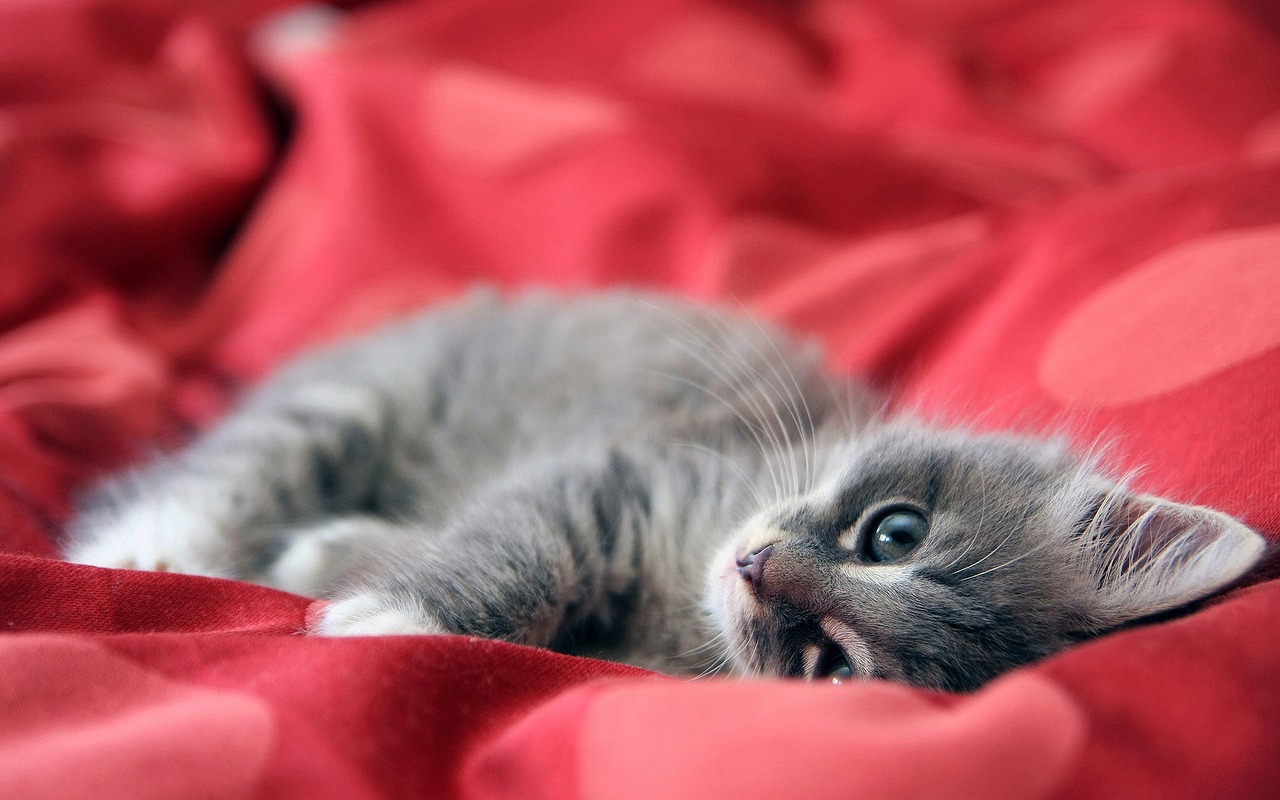
Common Health Risks of Obesity
Obesity is not just a cosmetic issue for our furry friends; it can lead to a myriad of serious health problems that can drastically affect their quality of life. As our pets age, their bodies become more susceptible to the negative effects of excess weight. The risks associated with obesity in senior pets are profound and can lead to chronic conditions that may shorten their lifespan and diminish their joy in life. Understanding these risks is crucial for pet owners who want to ensure their companions live long, healthy lives.
One of the most alarming health risks of obesity is the increased likelihood of developing diabetes. Just like in humans, obesity can lead to insulin resistance, making it difficult for pets to regulate their blood sugar levels. This can result in a condition where the body cannot produce enough insulin, leading to diabetes. Furthermore, the complications associated with diabetes can be severe, including kidney failure and even cataracts, which can lead to blindness.
Another significant concern is arthritis. Excess weight puts additional strain on joints, which can exacerbate the pain and discomfort associated with this degenerative disease. For senior pets already suffering from arthritis, carrying extra pounds can make it nearly impossible for them to enjoy their favorite activities, like going for walks or playing fetch. The vicious cycle of inactivity due to pain can lead to further weight gain, worsening their condition.
Additionally, obesity can lead to heart disease. Just like us, our pets' hearts have to work harder to pump blood through a body that is carrying excess weight. This can lead to hypertension and heart failure over time. It’s a sad reality that many pet owners may not realize until it’s too late. The heart health of our pets is paramount, and maintaining a healthy weight is one of the best ways to support it.
Furthermore, obesity can also increase the risk of certain cancers. Studies have shown that overweight pets are more likely to develop tumors, which can lead to a host of other health problems. The connection between obesity and cancer is an area of ongoing research, but what we do know is that maintaining a healthy weight can significantly reduce these risks.
In summary, the health risks associated with obesity in senior pets are numerous and serious. From diabetes and arthritis to heart disease and cancer, the implications of excess weight can be devastating. It’s essential for pet owners to be proactive in managing their pets’ weight through proper diet, regular exercise, and routine veterinary check-ups. By doing so, we can help our beloved companions lead healthier, happier lives.
- How can I tell if my pet is overweight? Look for visible signs such as difficulty in feeling their ribs, a lack of defined waist, and reduced energy levels.
- What should I feed my senior pet to help manage their weight? Consult your veterinarian for dietary recommendations, but generally, a balanced diet with controlled portions of high-quality food is best.
- How much exercise does my senior pet need? While it varies by breed and health, aim for at least 20-30 minutes of gentle exercise daily, adjusting as needed for your pet's capabilities.
Diabetes and Its Impact
Diabetes is more than just a buzzword; it's a serious condition that can drastically affect the quality of life for our beloved senior pets. When a pet becomes overweight, their body struggles to regulate insulin effectively, leading to a condition known as diabetes mellitus. This metabolic disorder can sneak up on you, often going unnoticed until it has already taken a toll on your furry friend’s health. Imagine your pet, once full of life and energy, now sluggish and lethargic, all because of an imbalance that could have been prevented.
As the weight piles on, the pancreas, which is responsible for producing insulin, becomes overwhelmed. This can lead to insulin resistance, where the body no longer responds to the hormone that regulates blood sugar levels. The consequences can be severe: high blood sugar levels can damage vital organs, leading to complications such as kidney disease, liver issues, and even increased risk of infections. It’s a vicious cycle, and understanding how obesity contributes to diabetes is crucial for every pet owner.
To put it simply, managing your pet's weight is not just about aesthetics; it's about ensuring they live a longer, healthier life. A study published in the Journal of Veterinary Internal Medicine found that overweight pets are significantly more likely to develop diabetes compared to their slimmer counterparts. In fact, the risk can increase by as much as 300% for those pets that are considered obese. This statistic should serve as a wake-up call for pet owners everywhere.
Moreover, diabetes in pets can lead to a host of other health problems. For instance, the increased thirst and urination that often accompany the disease can lead to dehydration, which is particularly dangerous for older pets. When you see your pet drinking more water than usual or having frequent bathroom breaks, it’s time to take action. Early intervention can make a world of difference, and recognizing the signs of diabetes is the first step.
So, what can you do to help your furry friend? Implementing a balanced diet and regular exercise can significantly reduce the risk of diabetes. It’s not just about cutting calories; it’s about providing the right nutrients that support your pet’s overall health. Consider consulting your veterinarian for a tailored diet plan that meets your senior pet's specific needs.
| Impact of Diabetes on Senior Pets | Potential Complications |
|---|---|
| Increased thirst and urination | Dehydration |
| Weight loss despite increased appetite | Malnutrition |
| Fatigue and lethargy | Organ damage |
| Frequent infections | Increased vet visits |
In conclusion, the impact of diabetes on senior pets cannot be overstated. It is a multifaceted condition that requires careful management and proactive measures to prevent. By understanding the relationship between obesity and diabetes, you can take the necessary steps to ensure your pet remains happy and healthy. Remember, your pet relies on you to make the right choices for their well-being, so let’s make those choices count!
- What are the signs of diabetes in senior pets? Look for increased thirst, frequent urination, weight loss, and lethargy.
- How can I prevent diabetes in my pet? Maintain a healthy weight through a balanced diet and regular exercise.
- Is diabetes treatable in pets? Yes, with proper management, including diet, medication, and lifestyle changes.
- Should I consult a veterinarian if I suspect my pet has diabetes? Absolutely! Early diagnosis is crucial for effective treatment.
Signs and Symptoms of Diabetes
Recognizing the in senior pets is crucial for ensuring their health and well-being. Just like in humans, diabetes can sneak up on our furry friends, and early detection can make all the difference. So, what should you be on the lookout for? Here are some of the most common indicators that your pet may be suffering from this condition:
- Increased Thirst: If you notice your pet drinking more water than usual, it could be a sign of diabetes. This excessive thirst often leads to increased urination.
- Frequent Urination: Along with increased thirst, you might find that your pet needs to go outside more often or has accidents indoors.
- Weight Loss: Surprisingly, despite eating normally or even more than usual, diabetic pets often lose weight. This is because their bodies can't properly utilize the glucose in their food.
- Increased Hunger: If your pet seems hungrier than usual but is losing weight, this could be a red flag.
- Lethargy: A noticeable decrease in energy levels or enthusiasm for playtime can also indicate that something is amiss.
- Poor Coat Condition: Diabetes can affect your pet's fur, making it dull or causing it to shed excessively.
Each of these signs can be subtle on their own, but if you start to notice a combination of them, it’s time to consult your veterinarian. Think of it like putting together a puzzle; each piece adds to the bigger picture of your pet's health. Early intervention can lead to more effective management of diabetes, ensuring your furry companion lives a longer, healthier life.
To make it easier for you to remember these symptoms, here’s a quick reference table:
| Symptom | Description |
|---|---|
| Increased Thirst | Drinking more water than usual, leading to more frequent urination. |
| Frequent Urination | Need to go outside more often or accidents indoors. |
| Weight Loss | Unexpected loss of weight despite normal or increased appetite. |
| Increased Hunger | Feeling hungrier than usual without gaining weight. |
| Lethargy | Decreased energy and enthusiasm for activities. |
| Poor Coat Condition | Dull fur or excessive shedding. |
In summary, being vigilant about these signs can help you catch diabetes early, allowing for timely treatment and management. Remember, your pet relies on you to notice these changes and act accordingly. So, keep an eye out and don’t hesitate to reach out to your vet if you suspect something is wrong!
Managing Diabetes in Overweight Pets
Managing diabetes in overweight pets is not just about administering medication; it’s a comprehensive approach that involves dietary changes, lifestyle modifications, and regular vet visits. Think of it as a three-legged stool—if one leg is weak or missing, the whole thing can topple over. The first leg is nutrition. A well-balanced diet tailored to the specific needs of senior pets is crucial. This means opting for high-quality, low-calorie pet food that is rich in fiber, which can help them feel fuller without adding excess calories. You might want to consult your vet for recommendations on the best food options for your furry friend.
Next comes the importance of portion control. Just because your pet looks at you with those big, pleading eyes doesn’t mean you should give in to every whim. Overfeeding can significantly worsen their condition. Instead, measure their food accurately and consider using a feeding schedule rather than free-feeding. This structured approach can help regulate their insulin levels and prevent spikes that can lead to complications.
Another critical aspect is regular exercise. Just like humans, pets need to stay active to manage their weight and overall health. However, exercise for senior pets should be gentle yet consistent. Activities like short walks, swimming, or even interactive play sessions can be beneficial. Aim for at least 30 minutes of moderate activity each day, but always consult your veterinarian to tailor an exercise program that suits your pet’s specific health needs.
Monitoring your pet's progress is essential. Keep a close eye on their weight, energy levels, and overall behavior. Regular vet check-ups are vital for adjusting their treatment plan as needed. Your vet may suggest periodic blood tests to monitor glucose levels, ensuring the diabetes is under control. Additionally, consider keeping a journal of your pet's daily food intake, exercise, and any changes in behavior. This can provide valuable insights for your vet and help in fine-tuning their management plan.
Finally, don’t underestimate the power of love and support. Managing diabetes can be a long journey, but your pet relies on you for guidance and care. Staying informed and proactive about their health will not only help in managing their diabetes but also improve their overall quality of life. Remember, a happy pet is a healthy pet!
- What are the first signs of diabetes in pets? Look for increased thirst, frequent urination, and unexplained weight loss.
- Can diabetes be reversed in pets? While diabetes can often be managed effectively, it is typically a lifelong condition that requires ongoing care.
- How often should my pet see the vet for diabetes management? Regular check-ups, typically every 3 to 6 months, are recommended to monitor their condition.
- What types of food are best for diabetic pets? High-fiber, low-carbohydrate diets are generally recommended, but always consult your vet for specific advice.
Arthritis: A Common Companion
Arthritis is often referred to as a silent thief, gradually stealing away the joy of movement from our beloved senior pets. As they age, the wear and tear on their joints can lead to inflammation and pain, making simple activities like jumping off the couch or going for a walk seem like monumental tasks. This is particularly concerning for overweight pets, as their extra pounds put additional strain on their joints, exacerbating the symptoms of arthritis.
Imagine carrying a heavy backpack everywhere you go; that’s what your pet feels when they’re overweight. The added pressure can lead to a vicious cycle: as their joints become more painful, they become less active, which can lead to further weight gain and an even greater risk of arthritis. This is why maintaining a healthy weight is not just a matter of aesthetics; it’s a crucial part of ensuring your pet’s comfort and mobility.
There are several factors that contribute to the development of arthritis in senior pets, including:
- Genetics: Some breeds are more prone to arthritis than others.
- Previous Injuries: Past injuries can lead to joint problems later in life.
- Obesity: Excess weight increases the load on joints, accelerating wear and tear.
Recognizing the signs of arthritis is essential for early intervention. Common symptoms include:
- Stiffness, especially after resting
- Difficulty in standing up or lying down
- Reluctance to engage in physical activities
- Changes in behavior, such as irritability or withdrawal
As a pet owner, it's heartbreaking to see your furry friend struggle with pain. However, there are effective strategies to manage arthritis and improve your pet's quality of life. Regular veterinary check-ups are essential, as your vet can provide tailored advice on pain management and anti-inflammatory medications. Additionally, incorporating joint supplements into your pet's diet can also help alleviate discomfort.
Moreover, gentle exercise is vital for maintaining joint flexibility and muscle strength. Activities like short walks, swimming, or even playful games can be beneficial without overexerting your pet. Think of it as a balance: just like we need to keep our own bodies moving to stay fit, our pets need that same attention to keep their joints healthy.
In conclusion, arthritis is indeed a common companion for senior pets, but with proper weight management, regular veterinary care, and gentle exercise, we can help them lead a comfortable and active life. Remember, a happy pet is one who can run, jump, and play without pain!
Q: How can I tell if my pet is overweight?
A: A simple way to assess your pet's weight is to feel their ribs. You should be able to feel the ribs without excess fat covering them. Additionally, a noticeable waistline when viewed from above is a good indicator of a healthy weight.
Q: What are the best exercises for senior pets with arthritis?
A: Low-impact activities such as swimming, short walks, and gentle play sessions are ideal. Always consult your vet before starting a new exercise routine.
Q: Are there specific diets that can help manage my pet's weight?
A: Yes! Look for high-quality, weight management pet food that is lower in calories but still provides essential nutrients. Consult your veterinarian for personalized dietary recommendations.

Preventive Measures for Pet Owners
Preventing obesity in senior pets is essential for ensuring their longevity and quality of life. As pet owners, it’s our responsibility to be vigilant about our furry companions' health, and this starts with understanding their unique needs. A proactive approach can make a world of difference. Regular monitoring of your pet's weight is a crucial first step. Weighing your pet monthly can help you catch any weight gain early on, allowing for timely intervention. If you notice a sudden increase, don’t hesitate to consult your veterinarian.
Another key aspect of obesity prevention is dietary management. Senior pets often require different nutritional needs compared to their younger counterparts. Look for specially formulated senior pet foods that are lower in calories but still rich in essential nutrients. When it comes to portion control, measuring out their food rather than free-feeding can help prevent overeating. Consider using feeding puzzles that make mealtime more engaging and slow down their eating pace, which can contribute to better digestion and weight management.
Exercise is equally important in maintaining a healthy weight. Regular physical activity not only helps burn calories but also keeps your pet's muscles and joints healthy. However, it’s important to tailor exercise routines to your pet’s abilities. Short, frequent walks are generally more beneficial than long, strenuous outings. Activities like gentle play sessions or swimming can also be excellent options for older pets who may have mobility issues. Aim for at least 30 minutes of moderate exercise each day, but always consult your vet to create a plan that suits your pet’s specific needs.
Furthermore, regular veterinary check-ups are vital. These visits can help catch potential weight-related issues before they become serious problems. During these appointments, your veterinarian can assess your pet's body condition score, recommend dietary adjustments, and suggest suitable exercise routines. Don’t forget to ask about any additional supplements that may support joint health or metabolism, which are particularly important for senior pets.
Lastly, it’s essential to create a supportive environment at home. Make sure your pet has a comfortable space to rest and recover after exercise. Reduce access to high-calorie treats and instead opt for healthier alternatives like baby carrots or green beans. By fostering a healthy lifestyle and being mindful of their habits, you can significantly enhance your senior pet’s quality of life.
- How often should I weigh my senior pet? It's recommended to weigh your pet monthly to monitor any changes in weight.
- What are some healthy treat alternatives for senior pets? Consider vegetables like carrots and green beans as low-calorie treats.
- How much exercise does my senior pet need? Aim for at least 30 minutes of moderate exercise daily, but adjust based on your pet's health and mobility.
- When should I consult a vet about my pet's weight? If you notice significant weight gain or loss, or if your pet is showing signs of discomfort, it's time to see a vet.
Nutrition Guidelines for Senior Pets
As our beloved furry companions age, their nutritional needs change significantly. It's crucial to adapt their diet to ensure they maintain a healthy weight and receive the essential nutrients necessary for their well-being. Senior pets often require fewer calories than their younger counterparts, primarily because their metabolism slows down. However, this doesn't mean they should miss out on vital nutrients. Instead, we must focus on providing a well-balanced diet that promotes overall health.
When selecting food for senior pets, it's essential to look for high-quality ingredients. Protein is particularly important as it helps maintain muscle mass, which can decline with age. Aim for a diet that includes lean protein sources such as chicken, fish, or turkey. Additionally, incorporating healthy fats is vital for maintaining skin and coat health, but moderation is key. Too much fat can lead to weight gain, so choose foods that contain omega-3 and omega-6 fatty acids.
Moreover, senior pets often experience digestive issues, so it's beneficial to opt for easily digestible carbohydrates like brown rice or sweet potatoes. These provide energy without straining their digestive systems. Fiber is another crucial component of a senior pet's diet. It aids in digestion and helps manage weight by making pets feel fuller for longer. Look for foods that include fiber-rich ingredients such as beet pulp or pumpkin.
Hydration is equally important, especially in senior pets who may be prone to urinary tract issues. Always ensure your pet has access to fresh water, and consider wet food options, which can help increase their water intake. It's also wise to consult with your veterinarian to determine if any specific dietary supplements, such as glucosamine or chondroitin, could benefit your pet's joint health.
In summary, here are some key :
- Provide high-quality protein sources to maintain muscle mass.
- Include healthy fats in moderation for skin and coat health.
- Opt for easily digestible carbohydrates to support digestion.
- Incorporate fiber-rich ingredients to promote satiety and digestive health.
- Ensure proper hydration with fresh water and consider wet food options.
Ultimately, understanding and adjusting your senior pet's nutritional needs is vital for their health. Regular veterinary check-ups can help monitor their weight and overall health, ensuring that any dietary changes are appropriate. By following these guidelines, you can help your furry friend enjoy their golden years with vitality and joy.
Q: How often should I feed my senior pet?
A: It's generally recommended to feed senior pets twice a day, but consult your veterinarian to determine the best feeding schedule based on your pet's specific needs.
Q: Can I give my senior pet treats?
A: Yes, treats can be given, but they should be healthy and low in calories. Consider fruits and vegetables like carrots or apples as nutritious options.
Q: How do I know if my senior pet is overweight?
A: You can assess your pet's weight by feeling their ribs. If you can't feel them easily, your pet may be overweight. A visit to the vet can provide a more accurate assessment.
Q: Should I change my senior pet's diet suddenly?
A: No, it's best to transition to a new diet gradually over a week to avoid digestive upset. Mix the new food with the old food, gradually increasing the proportion of the new food.
Exercise Recommendations
When it comes to keeping our senior pets healthy and happy, exercise plays a pivotal role. Just like humans, pets need regular physical activity to maintain their weight and overall well-being. However, as our furry friends age, their energy levels and physical capabilities may change, requiring us to adapt their exercise routines accordingly. So, what types of exercises are best for senior pets? Let's dive into some effective recommendations!
First and foremost, it's essential to consider low-impact activities that are gentle on their joints. Activities such as walking, swimming, or even light play can provide the necessary movement without putting too much strain on their bodies. For instance, swimming is an excellent choice because it allows pets to exercise without the pressure of gravity. It's like a refreshing spa day that also helps them shed some pounds!
Another great option for senior pets is short, frequent walks. Instead of one long walk, consider breaking it up into several shorter sessions throughout the day. This approach not only makes it easier for your pet but also keeps their energy levels stable. You might think of it like snacking versus a big meal; small bites can be more satisfying and easier to digest!
In addition to walks, incorporating some form of mental stimulation into your pet's routine is also beneficial. Engaging their minds can be just as tiring as physical exercise. Consider using puzzle toys or teaching them new tricks. This not only keeps them active but also strengthens the bond between you and your furry friend. After all, a tired mind can lead to a tired body!
It's also crucial to keep an eye on your pet's body language during exercise. If they seem fatigued or reluctant, it may be time to slow down or take a break. Remember, every pet is unique, and what works for one may not work for another. If you're unsure about the best exercise regimen for your senior pet, consult your veterinarian. They can provide tailored advice that considers your pet's specific health needs and capabilities.
Finally, don't forget to celebrate your pet's achievements, no matter how small! Whether it's completing a short walk or mastering a new trick, positive reinforcement can go a long way in keeping them motivated. After all, who doesn't love a little praise and a tasty treat for a job well done?
1. How much exercise does my senior pet need?
The amount of exercise varies by breed, size, and individual health conditions. Generally, aim for at least 20-30 minutes of low-impact exercise a day, broken into shorter sessions.
2. Can my senior pet swim?
Yes! Swimming is an excellent low-impact exercise for senior pets, as it provides a full-body workout without the strain on their joints.
3. What signs indicate that my pet is overexerted?
Watch for signs of fatigue, such as excessive panting, limping, or reluctance to continue. If you notice any of these symptoms, it's best to stop the activity and allow them to rest.
4. Should I consult my vet before starting a new exercise routine?
Absolutely! Your veterinarian can provide personalized recommendations based on your pet's health history and current condition.
Frequently Asked Questions
- What are the signs that my senior pet is overweight?
Identifying whether your senior pet is overweight can be straightforward. Look for signs such as difficulty in feeling their ribs, a noticeable belly, or a lack of energy. If your pet seems to be less active or has trouble with everyday movements like jumping or climbing stairs, these could be indicators of excess weight.
- How can I help my senior pet lose weight safely?
Helping your senior pet lose weight requires a balanced approach. Start by consulting your veterinarian for a tailored diet plan. Incorporate low-calorie, nutrient-rich foods, and monitor portion sizes. Regular, gentle exercise is also essential—think short walks or play sessions that keep them engaged without overexerting them.
- Can obesity in pets lead to diabetes?
Absolutely! Obesity is a major risk factor for diabetes in pets. When a pet is overweight, their body can become resistant to insulin, leading to elevated blood sugar levels. This condition can significantly impact their health and quality of life, making it crucial to maintain a healthy weight.
- What dietary changes should I consider for my overweight senior pet?
Switching to a high-quality, low-calorie diet specifically formulated for senior pets is a great start. Look for foods that are rich in fiber and protein but low in fat. Always ensure that any dietary changes are gradual to avoid upsetting your pet’s stomach.
- How often should I exercise my senior pet?
For senior pets, consistency is key! Aim for short, daily exercise sessions rather than long, strenuous workouts. Even 15-20 minutes of light activity, like walking or gentle play, can make a significant difference in their weight and overall health.
- Are there specific health risks for senior pets that are overweight?
Yes, overweight senior pets face several health risks, including diabetes, arthritis, heart disease, and respiratory issues. These conditions can severely affect their quality of life and longevity, which is why maintaining a healthy weight is so important.
- How can I monitor my pet's weight effectively?
Regular weigh-ins at the vet are essential, but you can also keep an eye on your pet's body condition score (BCS). This involves visually assessing their shape and feeling their body for fat deposits. A healthy pet should have a defined waist and ribs that are easily felt but not visible.
- What role do vet check-ups play in managing my pet's weight?
Regular vet check-ups are crucial in managing your senior pet's weight. Your veterinarian can provide personalized advice, monitor their health, and adjust dietary plans as needed. They can also identify any underlying health issues that may be contributing to weight gain.



